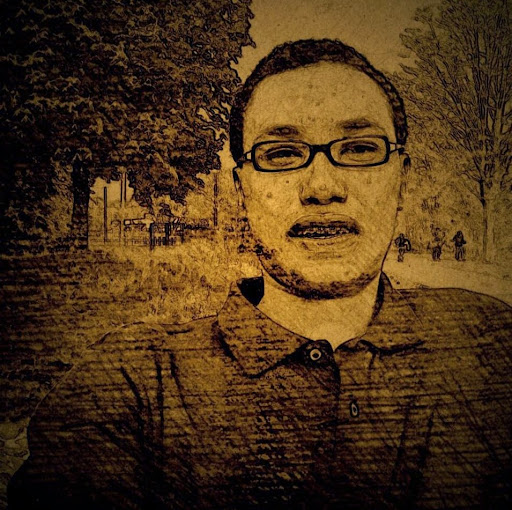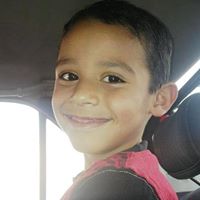Ahmad A Abdulkader
age ~57
from Palo Alto, CA
- Also known as:
-
- Ahmed A Abdulkader
- Ahmad A Mageed
- Ahma Abdulkader
- Alia Abdulkader
- Ahmad Abdelkader
- Ahmed Abdulmageed
- Mageed Abdulkader Ahmad
- Abdulkader Ahmed
- Abdulkader Ahmad
- Abdulkader Ahma
- Phone and address:
- 737 Loma Verde Ave APT 12, Palo Alto, CA 94303
Ahmad Abdulkader Phones & Addresses
- 737 Loma Verde Ave APT 12, Palo Alto, CA 94303
- 1048 Foxhurst Way, San Jose, CA 95120 • (408)9972594
- Cupertino, CA
- Sunnyvale, CA
- Sammamish, WA
- Woodinville, WA
- Bellevue, WA
- 6523 Leyland Park Dr, San Jose, CA 95120 • (408)9972594
Work
-
Company:Microsoft corp.Apr 2009
-
Address:Microsoft Corp.
-
Position:Partner architect
Education
-
Degree:Masters
-
School / High School:University of Washington1999 to 2000
-
Specialities:Computer Science
Skills
Machine Learning • OCR • Information Retrieval • Algorithms • Search • Computer Vision • Artificial Intelligence • Technical Leadership • Data Mining • C++ • C# • C • Java • Pattern Recognition • Optimization • SQL • Linux • Engineering Management
Awards
- Awarded Patents: • - Preprocessing of multi-line rotated electronic ink • - Reducing and controlling sizes of prototype-based recognizers • - KDD Cup 2004, 4th Position
Interests
Machine Learning, Text Recognition, Data...
Industries
Computer Software
Us Patents
-
Preprocessing Of Multi-Line Rotated Electronic Ink
view source -
US Patent:7010165, Mar 7, 2006
-
Filed:May 10, 2002
-
Appl. No.:10/144233
-
Inventors:Gregory Hullender - Bellevue WA, US
Ahmad Abdulkader - Sammamish WA, US -
Assignee:Microsoft Corporation - Redmond WA
-
International Classification:G06K 9/18
-
US Classification:382186
-
Abstract:An electronic ink object is preprocessed for improving handwriting recognition results. An electronic ink object, possibly having multiple lines of non-horizontal ink, is preprocessed by segmenting or separating the electronic ink object into one or more lines, computing a writing angle of each line, and rotating each line so that it is horizontal.
-
Stroke Segmentation For Template-Based Cursive Handwriting Recognition
view source -
US Patent:7302099, Nov 27, 2007
-
Filed:Nov 10, 2003
-
Appl. No.:10/704785
-
Inventors:Qi Zhang - Redmond WA, US
Henry A. Rowley - New Castle WA, US
Ahmad A. Abdulkader - Sammamish WA, US
Angshuman Guha - Woodinville WA, US -
Assignee:Microsoft Corporation - Redmond WA
-
International Classification:G06K 9/18
G06K 9/00 -
US Classification:382186, 382185, 382187
-
Abstract:Ink strokes of cursive writing are segmented to make the cursive writing more like print writing, particularly with respect to the number of strokes of a character. A stroke-segmentation module first finds the local extrema points on a stroke of input ink. Then the local extrema points are stepped through, two (or three) at a time. The stroke-segmentation module may compare the three (or four) ink segments that are adjacent to the two (or three) local extrema points to a set of predefined stroke-segmentation patterns to find a closest matching pattern. Strokes are then segmented based on a stroke-segmentation rule that corresponds to the closest matching pattern. Additional stroke segmentation may be performed based on the change of curvature of the segmented ink strokes. Then, a character-recognition module performs character recognition processing by comparing the segmented ink strokes to prototype samples at least some of which have been similarly segmented.
-
Template-Based Cursive Handwriting Recognition
view source -
US Patent:7369702, May 6, 2008
-
Filed:Nov 7, 2003
-
Appl. No.:10/702663
-
Inventors:Ahmad A. Abdulkader - Sammamish WA, US
Brian Leung - Cambridge MA, US
Henry Allan Rowley - New Castle WA, US
Qi Zhang - Redmond WA, US -
Assignee:Microsoft Corporation - Redmond WA
-
International Classification:G06K 9/00
G06K 9/62 -
US Classification:382187, 382161, 382224
-
Abstract:Input handwritten characters are classified as print or cursive based upon numerical feature values calculated from the shape of an input character. The feature values are applied to inputs of an artificial neural network which outputs a probability of the input character being print or cursive. If a character is classified as print, it is analyzed by a print character recognizer. If a character is classified as cursive, it is analyzed using a cursive character recognizer. The cursive character recognizer compares the input character to multiple prototype characters using a Dynamic Time Warping (DTW) algorithm.
-
Preprocessing Of Multi-Line Rotated Electronic Ink
view source -
US Patent:7412095, Aug 12, 2008
-
Filed:Oct 24, 2005
-
Appl. No.:11/257332
-
Inventors:Gregory N. Hullender - Bellevue WA, US
Ahmad Abdulkader - Sammamish WA, US -
Assignee:Microsoft Corporation - Redmond WA
-
International Classification:G06K 9/18
-
US Classification:382186, 382177, 382187, 382189, 382294, 382295, 382296
-
Abstract:An electronic ink object is preprocessed for improving handwriting recognition results. An electronic ink object, possibly having multiple lines of non-horizontal ink, is preprocessed by segmenting or separating the electronic ink object into one or more lines, computing a writing angle of each line, and rotating each line so that it is horizontal.
-
Handwriting Recognition Using A Comparative Neural Network
view source -
US Patent:7496547, Feb 24, 2009
-
Filed:Jun 10, 2005
-
Appl. No.:11/150852
-
Inventors:Ahmad A. Abdulkader - Redmond WA, US
Ioannis A. Drakopoulos - Redmond WA, US
Qi Zhang - Redmond WA, US -
Assignee:Microsoft Corporation - Redmond WA
-
International Classification:G06F 15/18
-
US Classification:706 20, 706 15, 706 48, 382159
-
Abstract:Handwriting recognition techniques employing a personalized handwriting recognition engine. The recognition techniques use examples of an individual's previous writing style to help recognize new pen input from that individual. The techniques also employ a shape trainer to select samples of an individual's handwriting that accurately represent the individual's writing style, for use as prototypes to recognize subsequent handwriting from the individual. The techniques also alternately or additionally employ an intelligent combiner to combine the recognition results from the personalized recognition engine and the conventional recognition engine (or engines). The combiner may use a comparative neural network to combine the recognition results from multiple recognition engines. The combiner alternately may use a rule-based system based on prior knowledge of different recognition engines.
-
Training With Heterogeneous Data
view source -
US Patent:7593908, Sep 22, 2009
-
Filed:Jun 27, 2005
-
Appl. No.:11/167734
-
Inventors:Ahmad A. Abdulkader - Woodinville WA, US
Iaonnis A. Drakopoulos - Redmond WA, US -
Assignee:Microsoft Corporation - Redmond WA
-
International Classification:G06N 3/08
-
US Classification:706 25, 382187
-
Abstract:Systems and methods are provided for training neural networks and other systems with heterogeneous data. Heterogeneous data are partitioned into a number of data categories. A user or system may then assign an importance indication to each category as well as an order value which would affect training times and their distribution (higher order favoring larger categories and longer training times). Using those as input parameters, the ordered training generates a distribution of training iterations (across data categories) and a single training data stream so that the distribution of data samples in the stream is identical to the distribution of training iterations. Finally, the data steam is used to train a recognition system (e. g. , an electronic ink recognition system).
-
Allograph Based Writer Adaptation For Handwritten Character Recognition
view source -
US Patent:7646913, Jan 12, 2010
-
Filed:Dec 19, 2005
-
Appl. No.:11/305968
-
Inventors:Ahmad A. Abdulkader - Woodinville WA, US
Kumar H. Chellapilla - Redmond WA, US
Patrice Y. Simmard - Bellevue WA, US -
Assignee:Microsoft Corporation - Redmond WA
-
International Classification:G06K 9/00
-
US Classification:382187, 382119, 382159, 382186
-
Abstract:The claimed subject matter provides a system and/or a method that facilitates analyzing and/or recognizing a handwritten character. An interface component can receive at least one handwritten character. A personalization component can train a classifier based on an allograph related to a handwriting style to provide handwriting recognition for the at least one handwritten character. In addition, the personalization component can employ any suitable combiner to provide optimized recognition.
-
Style Aware Use Of Writing Input
view source -
US Patent:7715629, May 11, 2010
-
Filed:Aug 29, 2005
-
Appl. No.:11/215818
-
Inventors:Ahmad A. Abdulkader - Redmond WA, US
-
Assignee:Microsoft Corporation - Redmond WA
-
International Classification:G06K 9/00
G06K 9/22 -
US Classification:382186, 382187, 382188, 382189, 382313, 382314
-
Abstract:Techniques for processing handwriting input based upon a user's writing style. Some techniques employ the style in which the user writes a single character, while other techniques alternately or additionally employ a group of allographs that form a handwriting style. Some implementations of these techniques, such as those implemented in writing style analysis tool, analyze one or more characters written by a user to identify a community, such as a geographic region or cultural group, to which the user's handwriting style belongs. Other implementations analyze one or more characters of a user's handwriting in order to alternately or additionally categorize the user's handwriting into a particular handwriting style. The writing style analysis tool may then provide the user with a handwriting recognition application specifically configured for that user's personal handwriting style. With still other implementations, the user's handwriting style alternately or additionally is employed to prevent a handwriting recognition application from using an aberrantly written character as training data for improving the recognition process, or to predict how a user writes other characters.
Resumes

Partner Architect @ Microsoft Corp.
view sourcePosition:
Partner Architect at Microsoft Corp.
Location:
San Francisco Bay Area
Industry:
Computer Software
Work:
Microsoft Corp. - Microsoft Corp. since Apr 2009
Partner Architect
Google Inc May 2007 - Apr 2009
Staff Software Engineer
Microsoft Live Labs 2006 - 2007
Principal Development Manager
Live Labs, Microsoft Corp. Nov 2005 - May 2007
Principal Development Manager
Microsoft Corp. Dec 1997 - Nov 2005
Software Architect
Partner Architect
Google Inc May 2007 - Apr 2009
Staff Software Engineer
Microsoft Live Labs 2006 - 2007
Principal Development Manager
Live Labs, Microsoft Corp. Nov 2005 - May 2007
Principal Development Manager
Microsoft Corp. Dec 1997 - Nov 2005
Software Architect
Education:
University of Washington 1999 - 2000
Masters, Computer Science Cairo University 1986 - 1990
B.Sc, Electrical Engineering
Masters, Computer Science Cairo University 1986 - 1990
B.Sc, Electrical Engineering
Skills:
Machine Learning
OCR
Information Retrieval
Algorithms
Search
Computer Vision
Artificial Intelligence
Technical Leadership
Data Mining
C++
C#
C
Java
Pattern Recognition
Optimization
SQL
Linux
Engineering Management
OCR
Information Retrieval
Algorithms
Search
Computer Vision
Artificial Intelligence
Technical Leadership
Data Mining
C++
C#
C
Java
Pattern Recognition
Optimization
SQL
Linux
Engineering Management
Interests:
Machine Learning, Text Recognition, Data Mining
Honor & Awards:
- Awarded Patents:
- Preprocessing of multi-line rotated electronic ink
- Reducing and controlling sizes of prototype-based recognizers
- KDD Cup 2004, 4th Position
Youtube
Googleplus

Ahmad Abdulkader

Ahmad Abdulkader

Ahmad Abdulkader

Ahmad Abdulkader

Ahmad Abdulkader

Ahmad Abdulkader

Ahmad Abdulkader

Ahmad Abdulkader
view source
Yassin Ahmad Abdulkader
view source
Ahmad Abdulkader
view source
Abdulkader Ahmad
view source
Ahmad Abdulkader
view source
Ahmad Abdulkader Sai
view source
Ahmad Abdulkader s
view source
Ahmad Abdulkader
view sourceGet Report for Ahmad A Abdulkader from Palo Alto, CA, age ~57












